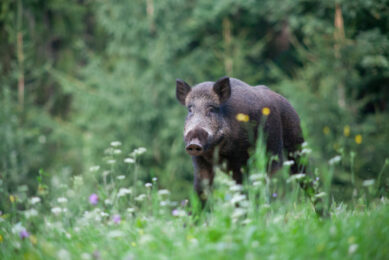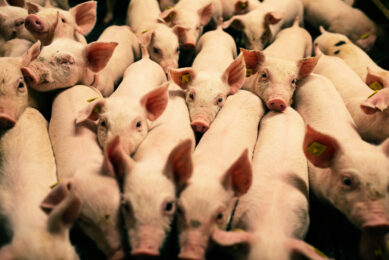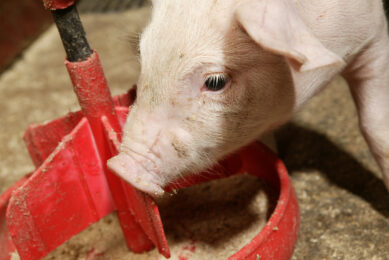Lectin from beans for successful weaning
Weaning is a problematic time for pigs, especially in intensive production. A radical solution has been found by using a lectin obtained from the red kidney bean plant (Phaseolus vulgaris). The technique should have major cost benefits for pig producers.
This new solution has been developed by the project EUREKA project E! 2675 ‘healthy weaning’. The plant-based product stimulates the maturing of the digestive tract in pigs. This helps the piglets’ adapt and significantly increases chances of successful weaning.
Project coordinator, Professor Stefan Pierzynowski of Lund University, Sweden, explains: “Giving this new factor, which we call Suilektin®, for a short, specific period before weaning stimulates the digestive tract to reach maturity faster. This helps it to change from the digestive and absorptive needs of milk, to those of an adult diet.”
Weaning at 28 days
The study showed that giving the lectin to piglets at 11 to 12 days old greatly enhanced successful weaning at 28 days. This result was achieved by accelerating the production of mature intestinal cells, able to cope effectively with the weaning diet.
During the project, field trials determined the optimal timing and dose, together with the best consistency and method of administration; and the results analysed the animals’ performance and the economic impact of the technique.
Reach the market
“We are very interested in finding a producer for Suilektin, and it could reach the market very soon. It will be both cheap and very effective,” says Pierzynowski.
Since the project was completed in October 2005, the project partners have filed two patents on their process and have received considerable interest from potential producers. A current consortium is actively working on behalf of the former EUREKA project partners to set up arrangements for production.
How soon the product reaches the market will be linked with the full implementation of the EU legislation.
Related links:
• Lund University Sweden
For the latest pig news, subscribe here











